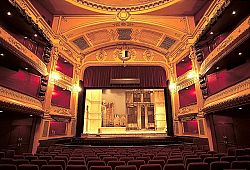

An appeal concerning the conversion of a grade II listed theatre in London's West End into a hotel has been dismissed following a 12-day inquiry.
Constructed in 1931, the Saville Theatre was used as such until the 1960s, when it was leased to the manager of the Beatles, Brian Epstein, and used as a music venue. Following that, the theatre was converted into a cinema in 1970 and was eventually bought by Odeon Cinema in 2001.
Part of the reason the building was listed in 1998 is because it features a decorative frieze by sculptor Gilbert Bayes, described by Historic England as "one of the largest and most important works of public sculpture of its time." It is also an art deco building and has an interesting architectural significance.
The intention was for the building to be converted into a 94-bed hotel with a spa, cinema and restaurant. The original planning application also sought a three-storey glazed extension and a roof terrace. However, this application was rejected by Camden Borough Council in 2019, with the main issues surrounding the development including:
The planning inspector decided that:
When balancing the issues and evidence presented at the inquiry, the inspector decided that the negative effect on the heritage and cultural aspects outweighed the benefits of the proposal and so the appeal was dismissed.